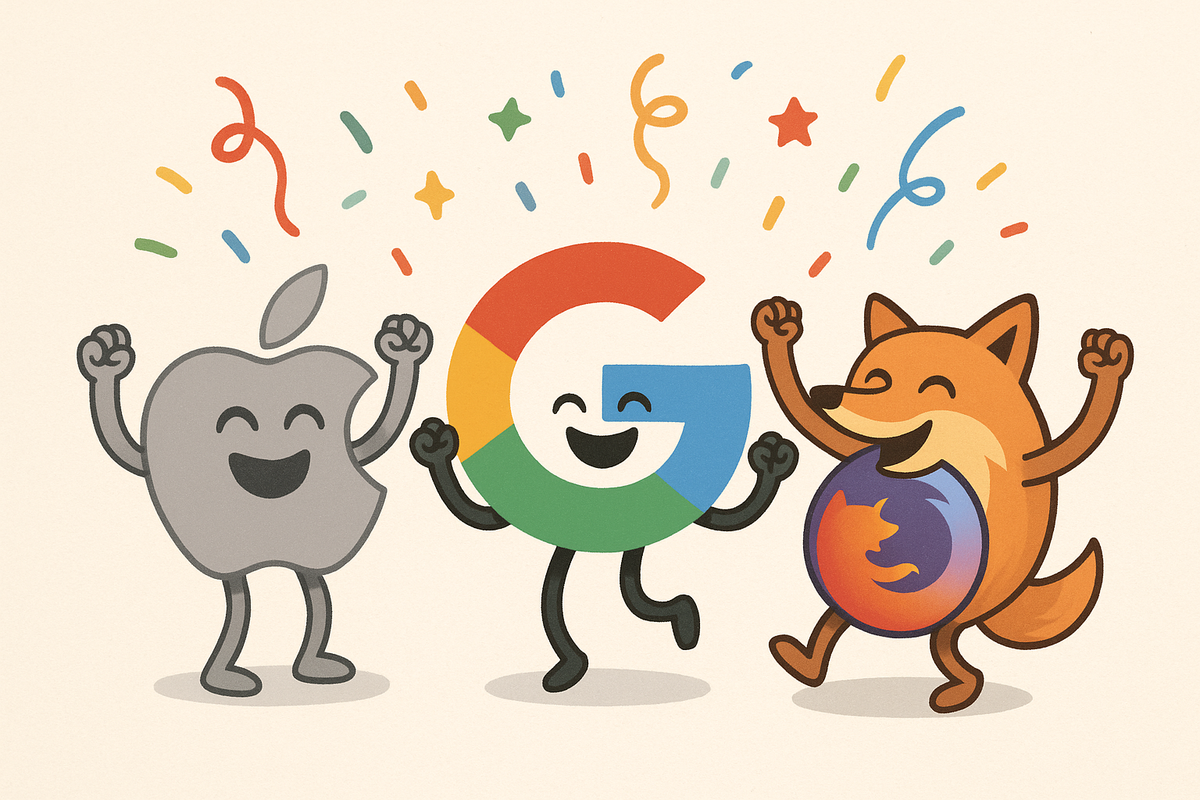Google triumphiert – aber wie lange?
Die Sektlaune könnte schnell wieder verfliegen, denn Googles Suchmonopol war trotzdem noch nie so gefährdet wie jetzt.

Es war zweifellos eine gute Woche für Google. Das Unternehmen kam in seinem wichtigsten Kartellverfahren mit einem Klaps auf die Finger davon, nachdem es im vergangenen Jahr als Monopolist im Suchmaschinenmarkt eingestuft worden war. Die Börse honorierte dies prompt und trieb den Aktienpreis um knapp 9 % nach oben. Aber war es die richtige Entscheidung von Richter Mehta, Chrome nicht abzuspalten und den 20 Milliarden Dollar-Deal mit Apple nicht zu verbieten? Ich denke ja. M.G. Siegler sieht das genauso:
In all seriousness, reading over Judge Amit Mehta's remarks, it seems pretty clear that he understood both the nuance of the various situations (such as with Apple and Mozilla – removing Google's payments wouldn't have changed Google's status, it just would have saved Google a ton of money) and recognizing his own limitations in trying to extrapolate out what would happen in AI. No one knows what will happen, not even the experts, it's all moving far too fast, as he notes.
And as much as Tim Wu may wish that the Justice Department had a Pre-Crime division, you sort of have to litigate in the world that exists, not the one you fear will exist. The best Judge Mehta could do was put in place controls to make it easier to see and take action if Google does indeed leverage the Search monopoly to take control of the AI market. But as of now, it seems like the market is doing its job in that regard. As much as competitors and opponents may not like that, he made the right calls.
Am Ende ist es nicht nur ein Sieg für Google (Apple und Mozilla), sondern vor allem ein weiterer herber Rückschlag für Antitrust-Verfahren gegen Big Tech. Die juristischen Mühlen mahlen einfach zu langsam für die schnelle Internetwelt und erst recht für die noch schnellere AI-Welt. Im Jahr 2020, als das Verfahren in Trumps erster Amtszeit eröffnet wurde, waren intelligente Chatbots für 99,9 % der Menschen noch Science Fiction. Nur fünf Jahre später sind sie eine reale Bedrohung für Googles Vormachtstellung im Suchmaschinenmarkt – ein Markt, um den man sich in Mountain View die letzten 20 Jahre keine Sorgen machen musste. Ob OpenAI es letztlich schaffen wird, sich auch nachhaltig ein größeres Stück vom Kuchen abzuschneiden, bleibt abzuwarten. Was sie aber definitiv nicht brauchen, ist die Hilfe des Staates. Wie würde die FDP sagen: Der Markt regelt.


